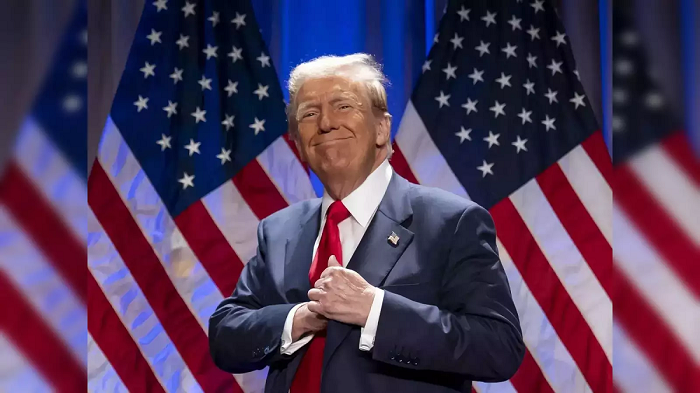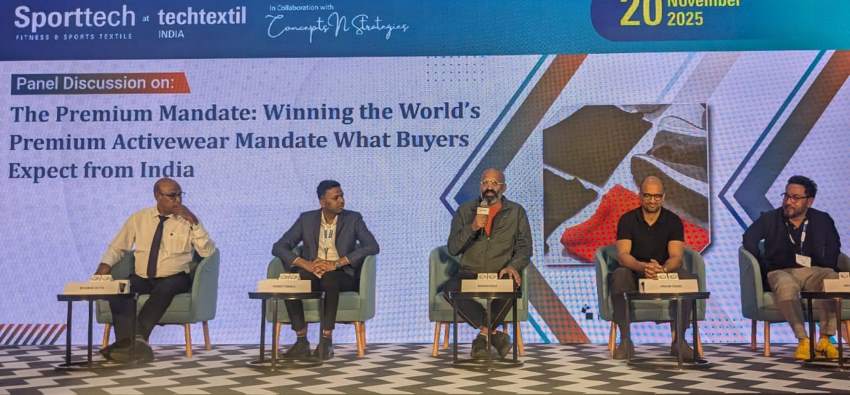
In a landmark presidential address, President Trump unveiled a sweeping set of policy initiatives aimed at revitalizing the American fashion, apparel, and textile industries. The announcements sent shockwaves through the sector, promising significant changes to manufacturing, sustainability, and labor practices. "For too long, the American fashion industry has been outsourced and undervalued," the President declared. "Today, we begin a new chapter, one where American creativity and craftsmanship lead the world once again."
Policy announcements
‘Made in America’ tax incentives: A significant tax credit will be offered to companies that manufacture clothing and textiles within the US. This aims to incentivize reshoring and boost domestic production.
Sustainable fashion fund: A $1 billion fund will be established to support research and development in sustainable materials and manufacturing processes. This initiative aims to reduce the environmental impact of the fashion industry and promote circularity.
Fair labor standards: New legislation will be introduced to strengthen labor protections for garment workers, including a national minimum wage for the industry and stricter regulations on working conditions.
Skills development and apprenticeship programs: Federal funding will be allocated to support training and apprenticeship programs for aspiring designers, pattern makers, and textile workers. This aims to address the skills gap and create new job opportunities in the sector.
Import tariffs: The President announced plans to impose tariffs on imported textiles and apparel from specific countries, citing concerns over unfair trade practices and environmental standards. This move is expected to significantly impact the cost of imported goods and potentially reshape global supply chains.
Industry reactions
The President's announcements have been met with a mix of excitement and apprehension. "This is a game-changer," says Anna Wintour, Editor-in-Chief of Vogue. "These policies have the potential to revitalize American fashion and make it a global leader in sustainability and ethical production." For example, The Renewal Workshop that specializes in apparel repair and upcycling, stands to benefit significantly from the Sustainable Fashion Fund. "This funding will allow us to scale our operations and create a more circular model for the fashion industry," says Nicole Bassett, Co-Founder of The Renewal Workshop.
The US apparel market is a significant economic sector, valued at approximately $358.70 billion in 2024, with projections to grow at a compound annual growth rate (CAGR) of 2.11 per cent between 2024 and 2028. Despite this growth, the industry faces challenges, as over 97 per cent of apparel sold in the US is imported, highlighting a reliance on global supply chains.
Concern about tariffs and its implications
Meanwhile, some industry leaders have expressed concerns about the potential impact on costs and competitiveness. "We applaud the President's commitment to sustainability and fair labor practices," says Bob Bland, CEO of the American Apparel & Footwear Association. "However, we need to ensure that these policies don't inadvertently harm American businesses or make them less competitive in the global market."
Of course, the proposed tariffs have sent ripples of concern through the industry. While intended to boost domestic manufacturing, they could also lead to increased costs for consumers as tariffs will likely translate to higher prices for clothing and textiles, impacting consumers and potentially dampening demand. What’s more, companies heavily reliant on imports may face challenges in sourcing materials and finished goods, leading to potential delays and disruptions. And trading partners could retaliate with their own tariffs on American goods, potentially harming other sectors of the economy.
For example, Everlane the clothing retailer, known for its transparent pricing and ethical sourcing, could face challenges due to the tariffs. "We are committed to providing our customers with high-quality, ethically made clothing at affordable prices," says a spokesperson for Everlane. "We are closely monitoring the situation and exploring all options to mitigate the impact of tariffs on our business."
Similarly, Patagonia the outdoor apparel company, renowned for its commitment to sustainability, has long advocated for responsible trade practices. "We believe that trade should be fair and sustainable," says a Patagonia representative. "We are hopeful that these tariffs will encourage a more responsible and equitable global trade system."
Political and cultural shifts
The return of President Trump to the White House has also influenced fashion trends, with a resurgence of ‘Republican chic’ styles. This aesthetic emphasizes traditional, feminine ensembles and polished, high-maintenance looks, marking a departure from previous Democratic fashion trends.
The point is that President Trump's ambitious vision for America's fashion industry promises significant change. Yet, the introduction of tariffs introduces complexity and uncertainty, potentially affecting prices and supply chains. The coming months will be critical in assessing how these policies shape the industry's future, impacting stakeholders from manufacturers to consumers on a global scale.












